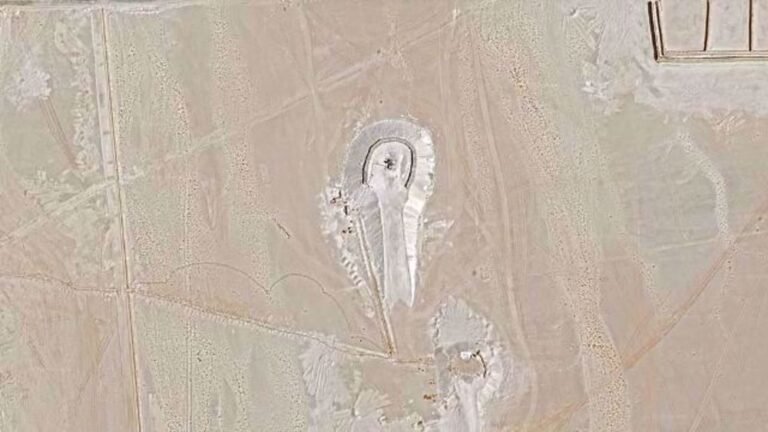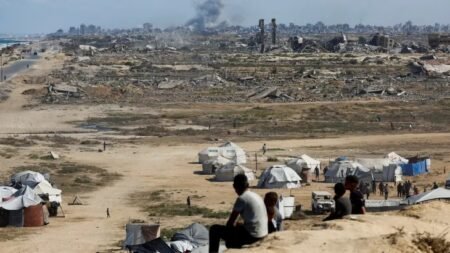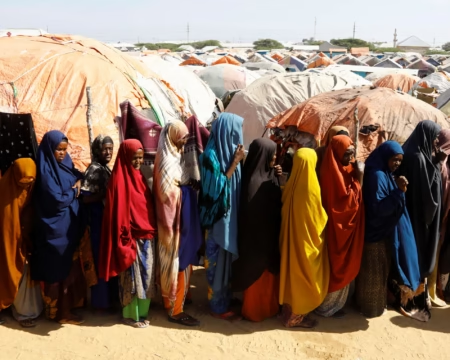The United Arab Emirates (UAE) has quietly placed an Israeli-made military radar in Somalia. The goal? To monitor missile and drone strikes launched by Yemen. These attacks are part of Yemen’s response to Israel’s war in Gaza. The move adds a new twist to the growing web of Middle East tensions spreading into Africa.
UAE Radar Installed in Puntland, Somalia
In early March, satellite images showed a radar system placed near the Bosaso airport in Puntland, a semi-autonomous region of Somalia. The radar, known as the ELM-2084, is the same type used in Israel’s Iron Dome defense system. It can track missiles, drones, and artillery with high accuracy.
The US-based Watan newspaper reported that the radar is being used to monitor missile strikes launched by Yemeni forces. These strikes are aimed at Israeli targets in the Red Sea and the Gulf of Aden.
According to Watan, “This shows that Abu Dhabi is running a security operation for Tel Aviv from African land.” The newspaper also said that the radar was installed without informing Somalia’s federal government or the Puntland parliament.
A Secret Deal Without Approval
Sources inside Somalia told Middle East Eye (MEE) that this deal was kept secret. Even top leaders in Puntland did not know about the radar deployment. “This is a secret deal, and even the highest levels of Puntland’s government, including the cabinet, are unaware of it,” said one Somali official.
The radar was reportedly placed at the Bosaso airport late last year. However, regional sources told MEE that it was set up after the UAE-backed Rapid Support Forces (RSF) lost control of most of Sudan’s capital, Khartoum, in early March. The RSF is a paramilitary group accused of war crimes in Sudan.
Link to Sudan’s Civil War
Sudan has taken the UAE to the International Court of Justice (ICJ), accusing it of breaking the Genocide Convention. The Sudanese government claims the UAE is supporting the RSF in its brutal campaign in Darfur.
The UAE has been using the Bosaso airport as a hub for its military operations, including aid to the RSF, according to MEE. Now, the airport is also being used for radar operations, possibly to detect missile and drone threats from Yemen’s Houthi forces. These forces are part of Yemen’s Ansarullah resistance movement and have launched many attacks on Israeli targets since the war on Gaza began.
Yemen’s Support for Gaza
Since October 2023, Yemeni forces have carried out dozens of attacks in support of Palestinians in Gaza. These attacks have included missile strikes on Israel and targeting of ships heading to Israeli ports. Yemen has openly declared its solidarity with Gaza, where thousands of civilians have died in what some are calling a genocide.
The UAE, once a key Arab supporter of the Palestinians, now appears to be helping Israel defend against Yemen’s strikes. This marks a sharp turn in regional alliances since the Abraham Accords normalized relations between the UAE and Israel in 2020.
Talks of an Israeli Base in Somaliland
The radar deployment may be part of a bigger plan. Sources told Watan that the UAE is helping Israel negotiate a deal to set up a military base in Somaliland. Somaliland declared independence from Somalia in 1991 but is not recognized internationally.
In exchange for hosting an Israeli base, Somaliland hopes the UAE and Israel will help it gain global recognition. Last year, Haaretz reported that both Israel and the UAE were interested in placing a base in the region to counter threats from Yemen.
What This Means for the Region
This growing partnership between Israel and the UAE in the Horn of Africa could create more tension. Somalia’s central government is already upset with Puntland for acting independently. Now, secret deals involving foreign military equipment are raising alarm.
African countries are also becoming unwilling players in the wider Middle East conflict. The involvement of Bosaso airport in both Sudan’s civil war and the Gaza conflict shows how far the effects of these wars are spreading.
A New Frontline in the Middle East Conflict
The UAE’s decision to install an Israeli radar in Somalia is more than just a security move. It’s a sign of how complex and far-reaching today’s conflicts have become. From the Red Sea to East Africa, the battle lines are no longer limited to the Middle East.
This development also raises questions about the use of African soil for foreign military interests. As the situation in Gaza continues to fuel global unrest, more countries may find themselves pulled into a widening crisis.







